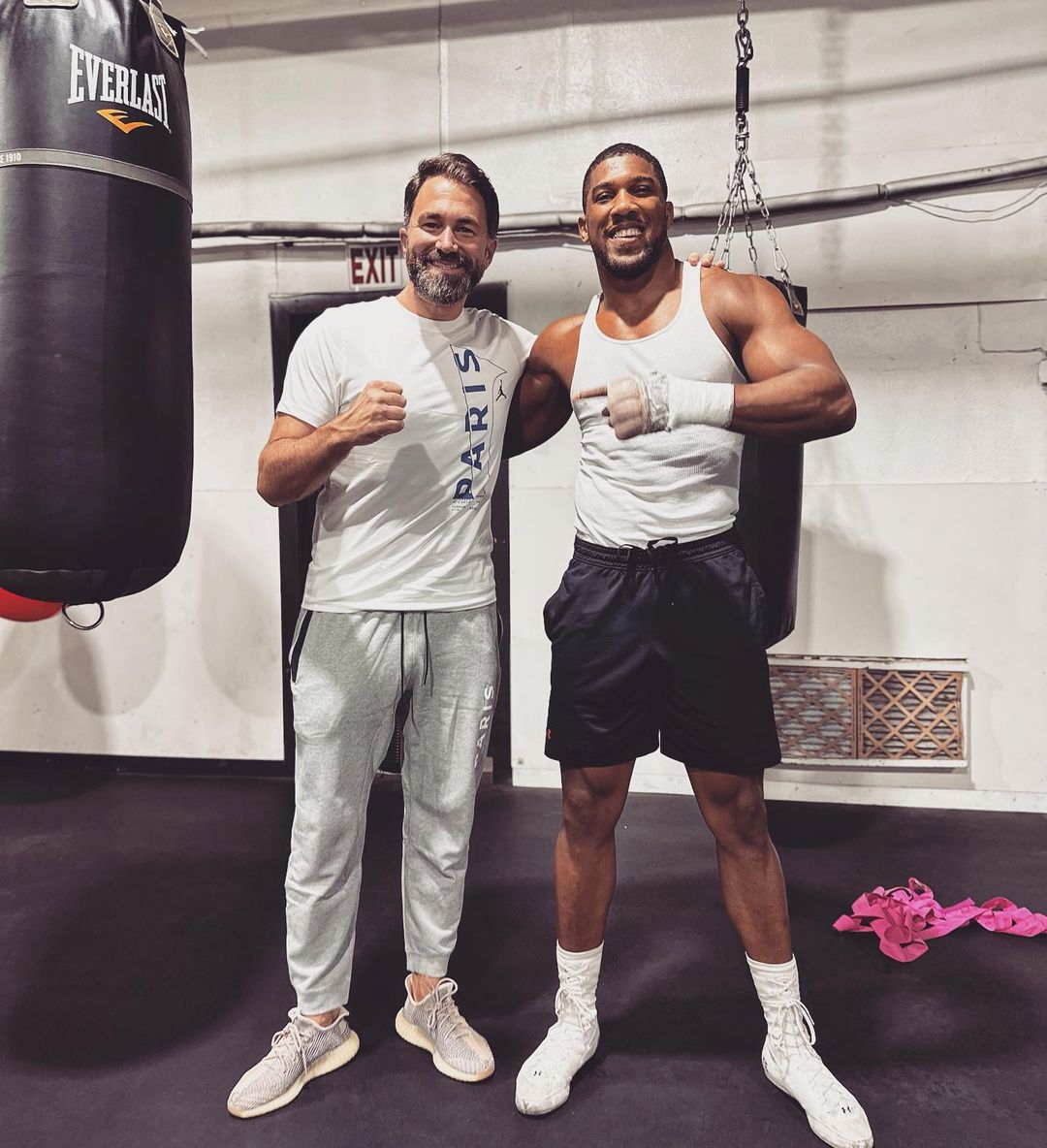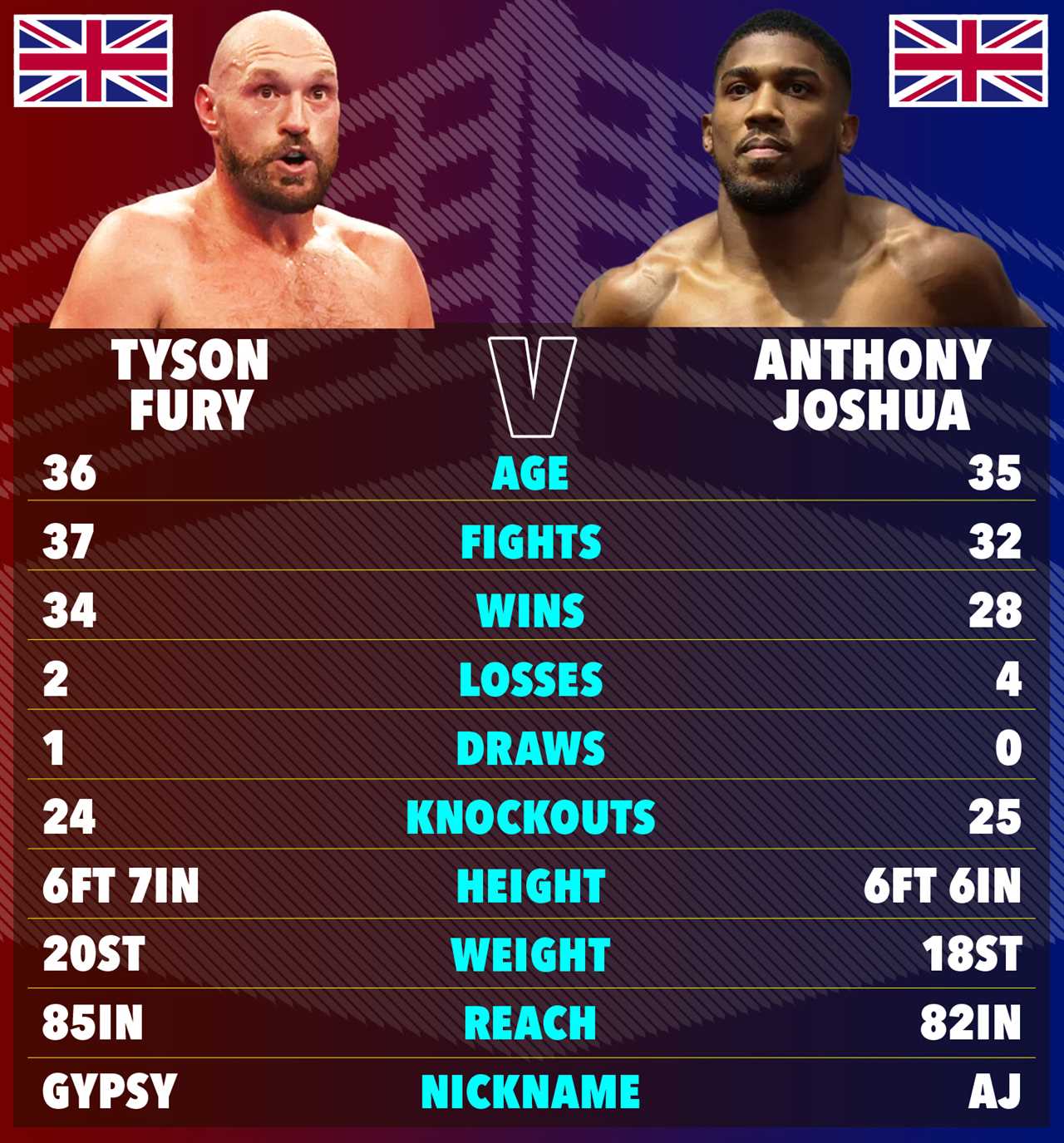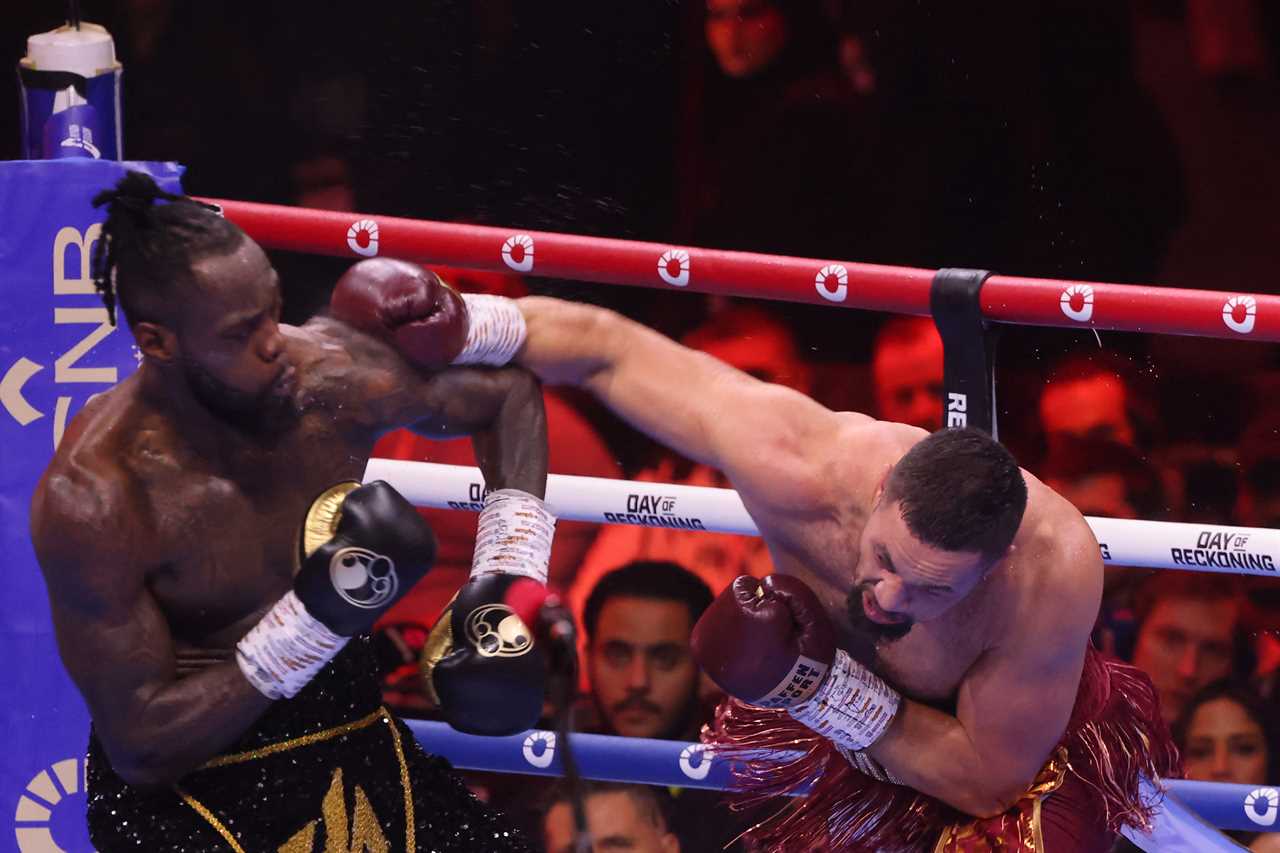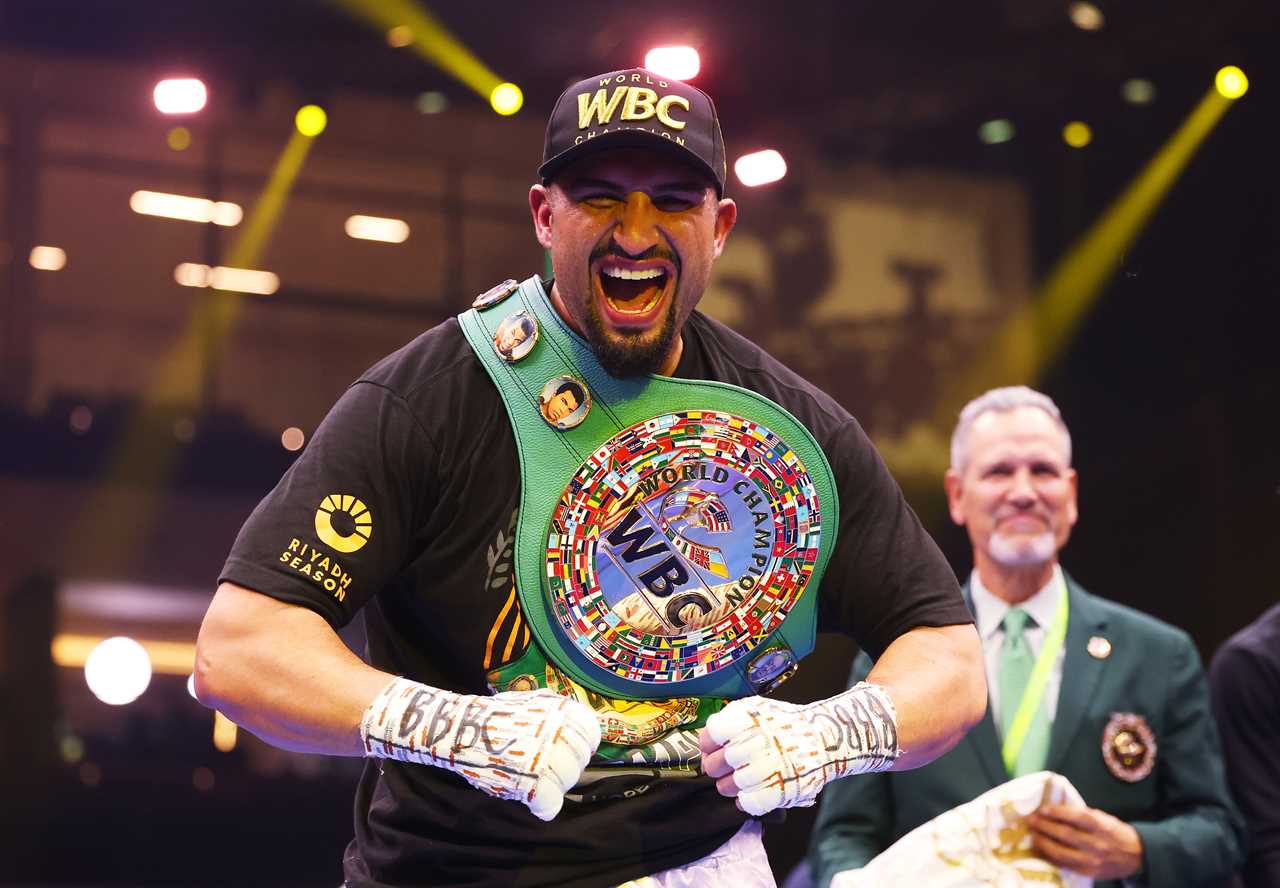
Joshua's Roadblock: The Injury Explained
Heavyweight champion Anthony Joshua remains sidelined following his defeat to Daniel Dubois in September. Eddie Hearn has shed light on the injury that has prevented Joshua's return to the ring, quelling rumours of an imminent summer comeback.
Nature of the Setback
Hearn shared with SunSport that the injury is a recurrence of a previous issue. “It’s nothing major,” he explained, “but for boxers of Joshua’s calibre, even a minor niggle can be a significant hurdle.” The primary concern is Joshua’s ability to throw punches effectively, a crucial aspect of his performance.
Training Challenges
Returning to training, Joshua found himself unable to execute his punches with the necessary power and precision. “He went back into training camp and just can’t punch,” Hearn noted. Unlike casual training, the rigorous demands of professional boxing require Joshua to deliver heavy, impactful strikes consistently.
Recovery Timeline
The timeline for Joshua's return appears optimistic yet cautious. Hearn estimates that the champion will need approximately six more weeks to regain his punching prowess fully. This period will be critical for Joshua to recover and prepare for his next bout.

Fury Fight on Hold
Initially, Joshua was set to engage in a two-fight series with Tyson Fury, with matches planned in Saudi Arabia and London. However, Fury’s unexpected retirement in January, following consecutive losses to Oleksandr Usyk, has thrown these plans into uncertainty.
Hearn’s Optimism for a Fury Rematch
Despite Fury’s retirement announcement, Hearn remains hopeful for a potential showdown. “In an ideal world, Tyson Fury gets off the sofa and decides to challenge Joshua,” Hearn remarked. Such a match would be a monumental event in heavyweight boxing, eagerly awaited by fans worldwide.
Alternative Opponents in the Mix
With Fury unlikely to return, Hearn is exploring other contenders to face Joshua. A rematch with Daniel Dubois is first on the list, given their recent clash and unresolved dynamics. Additionally, Hearn is considering a second bout with Oleksandr Usyk, despite the contentious nature of their last encounter, which featured a disputed low-blow.
Other Potential Challengers
Beyond Dubois and Usyk, Hearn has identified Agit Kabayel and Joseph Parker as viable opponents. Kabayel holds the WBC interim title, while Parker is the reigning WBO interim champion. Both fighters present credible challenges and could reinvigorate Joshua’s campaign.

Deontay Wilder in the Picture
Adding to the list of possible opponents is Deontay Wilder, a seasoned heavyweight and former champion. Wilder’s aggressive style and experience in the ring could make for a compelling and action-packed fight against Joshua.
Strategic Planning for Joshua’s Future
Hearn emphasizes the importance of taking calculated steps in Joshua’s career. “We’re in no rushing situation. The next move is crucial for the final chapter of his career,” he stated. The focus is on ensuring that whichever opponent Joshua faces next contributes positively to his legacy.
Looking Ahead
As Joshua recuperates, the boxing community watches closely, anticipating his next move. Whether it’s a rematch with Dubois, a bout against Usyk, or a new challenge from Kabayel, Parker, or Wilder, Anthony Joshua’s return promises to reignite the heavyweight division with thrilling action.
Final Thoughts
Anthony Joshua’s journey back to the ring is met with both challenges and opportunities. With Eddie Hearn’s strategic guidance and Joshua’s determination, fans can expect an exciting series of events as the champion navigates his path to redemption and continues to build his legacy in the world of boxing.

Frequently Asked Questions
What type of diet is best for a beginner boxer?
A beginner boxer should eat a nutritiously balanced diet to fuel intense workouts and encourage recovery. A mix of carbohydrates is best for energy, lean protein to repair and build muscle, and healthy fats to improve overall health. It is also important to consume vitamins and minerals as well. Consulting a nutritionist who specializes in sports can help create a custom diet plan for boxers that matches their training and weight-class targets.
Are there age restrictions for learning to box professionally?
Professional boxing has age restrictions. Most boxing organizations require boxers to be 18 years old or older before they can fight professionally. On the upper end, while there is no specific age limit, physical capabilities and health factors will naturally limit the age at which one can compete effectively and safely. The fitness of older athletes and the risks involved in taking up professional sports must be carefully assessed before they begin.
What role do managers, promoters and agents play in a pro boxer’s career?
Promoters and managers play an important role in a boxer’s professional career. Managers manage the career of boxers, negotiate contracts, and take care of their business affairs. They also provide support in selecting the right fights and looking after the boxer's interests. Promoters focus their efforts on organizing events, marketing the fights, and attracting sponsor and audience attention.
How long does it take to become an elite boxer?
The time to become professional boxer can differ greatly. It is dependent on the starting level of the boxer, his/her ability to adapt, and how well he/she trained. It may take several years for a dedicated amateur athlete to reach the level of a professional. Some people may develop more quickly while others will take more time.
Can anyone learn to box?
Boxing is a sport that many people can enjoy, but not everyone has what it takes for them to compete on a professional stage. Professional boxing requires a unique blend of talent, physical abilities, mental toughness, and dedication. Prospective boxers should also be willing accept the inherent risk of the sport. A thorough screening by a boxing trainer can determine whether someone has the potential to pursue a career in professional boxing.
What is needed to start training as a professional boxer?
For anyone to start training in professional boxing they must have a commitment to fitness, discipline and an open mind. In the beginning, you will need to master basic fundamentals such as stance, footwork and punches. Joining a boxing gym that has experienced trainers with a thorough understanding of the nuances involved in professional competition is essential. Before they compete, novice boxers usually undergo a regimen of intense conditioning, drills and sparring.
What are the risks associated with professional boxing?
As with any contact sport there are inherent risks in professional boxing. There are many acute injuries that may occur, including head trauma and fractures. Chronic conditions can also develop, such a concussions. Proper training, safety equipment, and adherence to boxing regulations help mitigate risks, but they can never be fully eliminated. It is important to understand and accept these risks before you decide to box professionally.
Statistics
- Research shows that a boxer's reaction time is typically under 0.25 seconds, honed through repetitive drills and sparring.
- The average age for boxers to turn professional is between 18 to 25 years, though many continue to compete well into their 30s and beyond.
- On average, a professional boxer spars between 100 to 200 rounds in preparation for a major fight.
- Nutrition experts emphasize that over 70% of a boxer's diet should focus on carbohydrates and proteins for energy and recovery.
- Around 60% of professional boxers supplement their income with other activities or jobs, due to variability in fight earnings.
- Cardiovascular fitness is critical, with a focus on high intensity interval training, comprising up to 40% of a boxer's conditioning program.
- Less than 10% of professional boxers are undefeated throughout their career, highlighting the sport's competitive nature.
External Links
How To
How to choose the best boxing equipment
Selecting the best boxing equipment is crucial for effective training and safety. Invest in high-quality gloves that have adequate padding and wrist support. Hand wraps can protect your hands, knuckles and fingers. Make sure you know how to use them. A mouthguard protects your teeth and can reduce the chances of concussion. If you want to train properly, invest in different punching bags that will help develop different aspects of technique. Also consider durable boxing sneakers with good ankle and traction support.
 CricketBoxingFormula 1GolfHorse RacingPremier LeagueTennisPrivacy PolicyTerms And Conditions
CricketBoxingFormula 1GolfHorse RacingPremier LeagueTennisPrivacy PolicyTerms And Conditions
